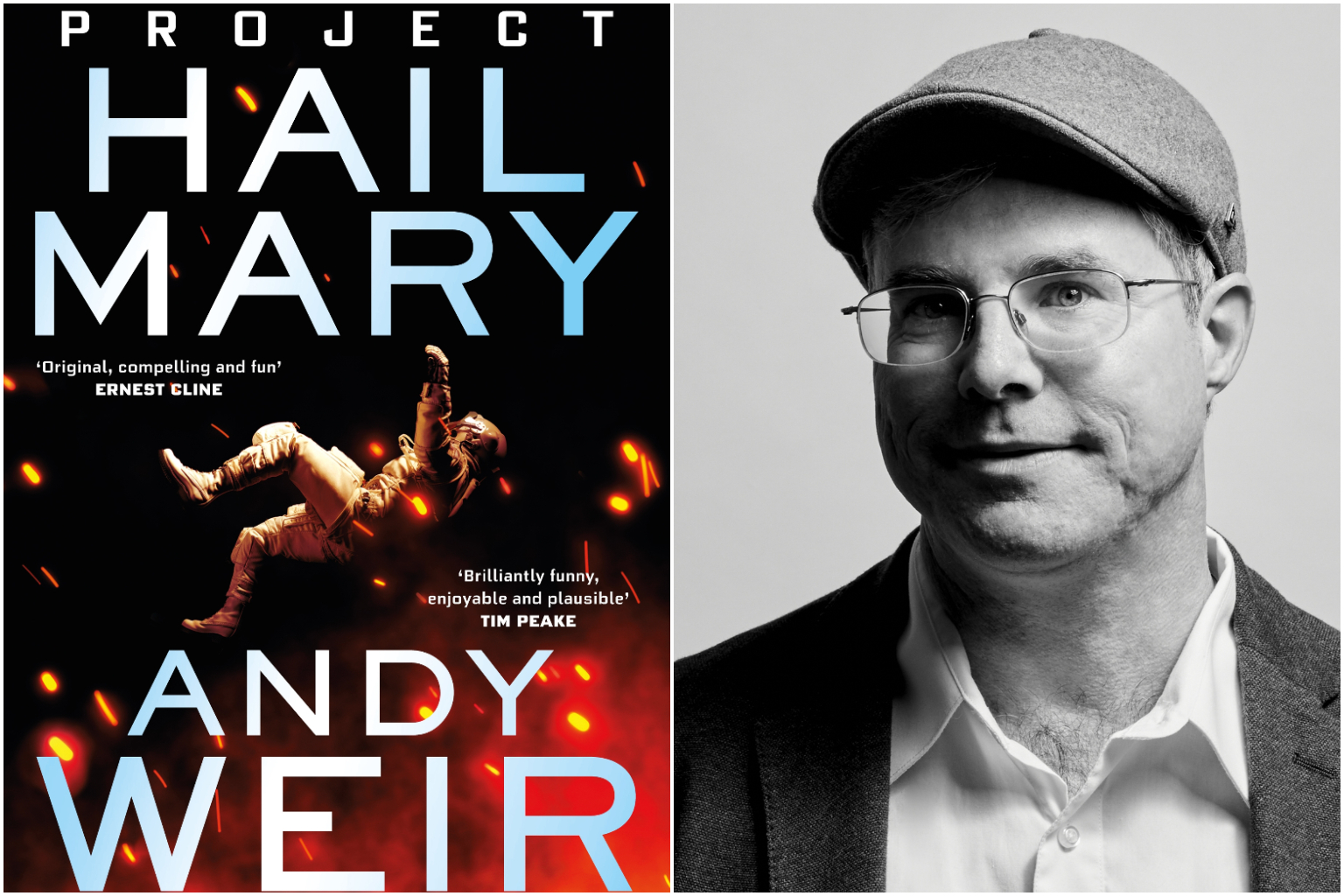Book review: All hail the hard science in Andy Weir's Project Hail Mary
Sign up now: Get ST's newsletters delivered to your inbox

Project Hail Mary is American author Weir's third novel, coming 10 years after his debut The Martian.
PHOTOS: DEL REY, AUBRIE PICK
Science fiction
Project Hail Mary
A man wakes up in a round, white room. Robot arms dangle from the ceiling. He is flanked by two desiccated corpses. He cannot remember his name, let alone where he is or why he is there.
In a different kind of novel, the hero might inspect the bodies or fashion a makeshift crowbar to explore his surroundings and figure out where he is.
But this is an Andy Weir novel, and it means his protagonist must work out the answers logically through the scientific method - in this case, starting with the calculation of gravity using test tubes, pendulums and a stopwatch.
As the reader quickly learns, the man's name is Ryland Grace. He is a scientist. He is on a spaceship headed towards a distant star. He is the only survivor of a last-ditch effort to save mankind from an interstellar microbe that threatens to plunge Earth into another Ice Age.
Project Hail Mary is American author Weir's third novel, coming 10 years after his debut The Martian (available here), which was turned into a blockbuster movie in 2015.
Its prose is more polished, but the formula remains broadly the same, down to the wise-cracking protagonist with a talent for problem-solving. After all, if it is not broken, there is no need to fix it.
Those who find themselves frustrated with "soft" science-fiction novels, in which the technical aspects are often glossed over with futuristic jargon, will find this book a satisfyingly solid read.
Weir has clearly done his homework. It is impressive how each problem faced by his protagonist - ranging across fields such as physics, chemistry and biology - is accompanied by a step-by-step description of his thought processes starting from first principles, with answers correct to two decimal places.
The short, punchy sentences prevent these sections from being overwhelming. And for those who are simply not interested in wading through the science, Grace's conclusions are always neatly summed up at the end of each passage.
One weak point is character development, with even the main characters feeling at times like cardboard cutouts delivering cliche one-liners.
Even so, this action-packed, fast-paced book remains a compelling read.
- If you liked this, read: Seveneves by Neal Stephenson (William Morrow, 2016, $33.32, available here), about humanity's struggle to save itself from extinction after the destruction of the Moon renders Earth uninhabitable.
This article contains affiliate links. If you buy through these links, we may earn a small commission.


